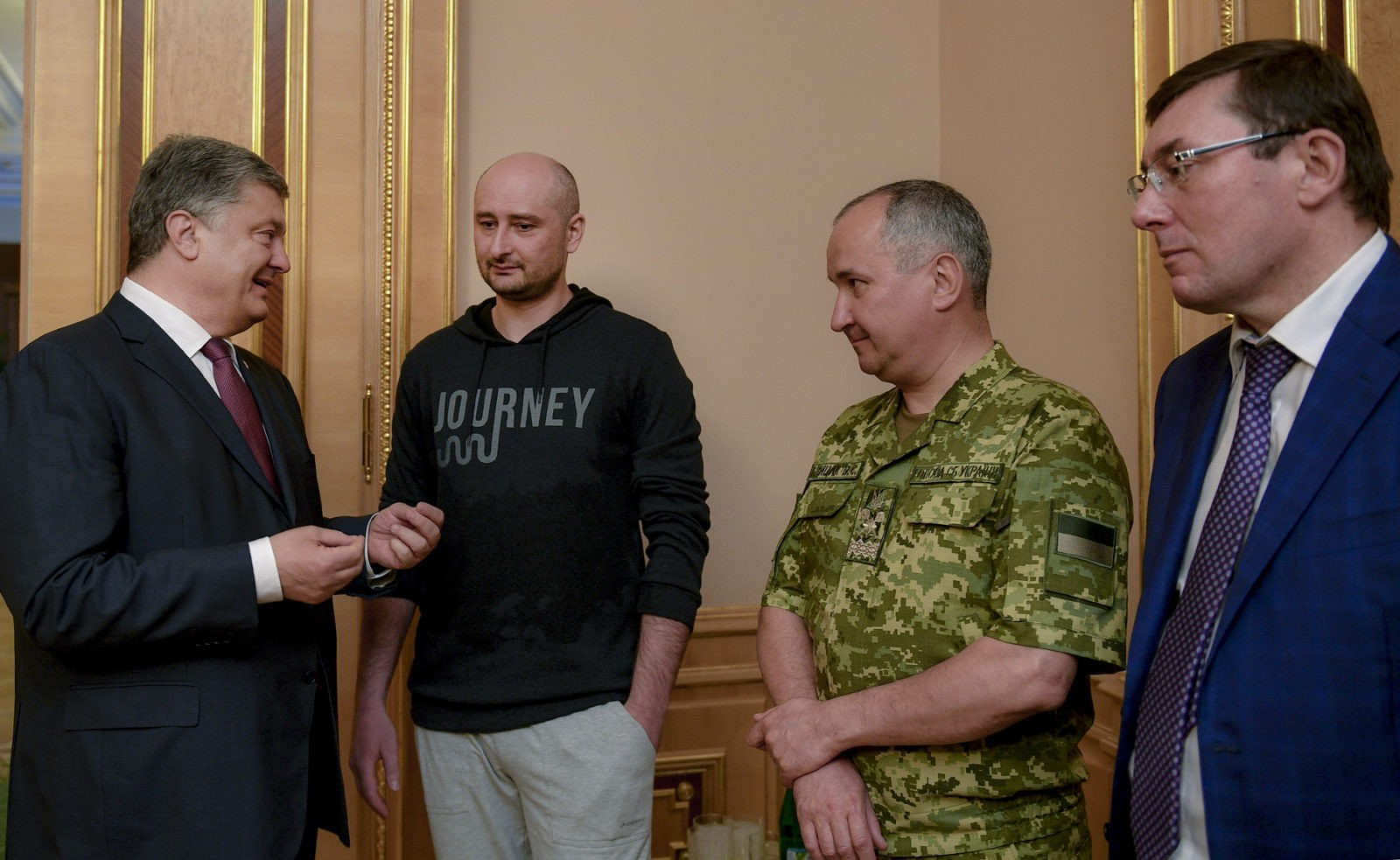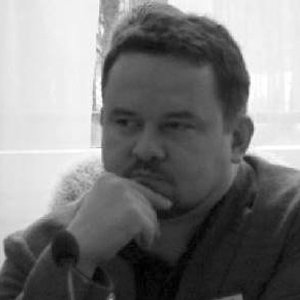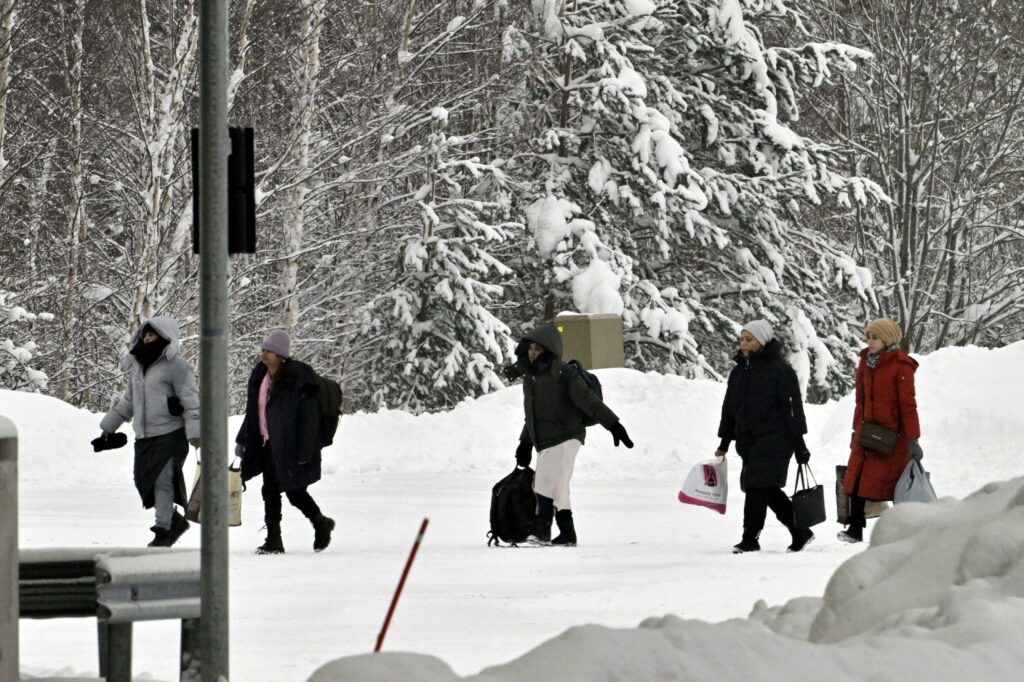Since 2012, the presence of hate speech in Russia’s mass media not only correlates with growing anti-Western sentiment, but has also fostered a sense of knee-jerk aggressiveness and intolerance across Russian society. The reaction to the SBU-staged assassination of Babchenko revealed a high level of intolerance even inside the opposition to the regime of Vladimir Putin.
Hate speech combines several main techniques:
- Dehumanisation of those targeted by hate speech;
- Generalisation – “they are all the same”;
- Devaluation of their life and activities by different means, most frequently denigration or mockery;
- Emotional and ethical inversion – for example, things that should trigger compassion often trigger further accusations;
- Replacement of rational logic by emotional conclusions based on hate-speech-induced loathing, revulsion and reinforced negative associations.
On the level of political discussion, hate speech is building “personal” identity though opposition to some hostile (or wrong) “alien” identity imposed on someone. Such a juxtaposition plays the role of a hermeneutic structure, “explaining” and justifying not only this division itself, but also discrimination against “others”. Hence, it would be a mistake to consider hate speech only as a string of words expressing hatred — it is rather the opposite. On a discursive level, hate speech is often concealed, appearing to be neutral, but implying quite unpleasant “objective” conclusions regarding an imaginary or real “other” side.
In reality, unofficial foreign-policy hate speech in Russia is indicated by the following dehumanising, generalising and belittling neologisms:
- In relation to Western countries: Gayropa and Pindosia, and, correspondingly, Gayropeytsy and Pindosy.
- In relation to Ukraine, especially during the conflict there – Khokhlyandia, Ukropia, Banderstan, and, correspondingly, Khokhly, Ukropy and Banderovtsy.
The following dehumanising expressions are used against the opposition in the symbolic field of domestic policy:
- Expressions such as banderlogi (‘bandar-logs’, e. the monkeys from Kipling’s The Jungle Book) have previously been used in official discourse to describe the opposition before 2012. After the annexation of Crimea, hate rhetoric started becoming harsher, and the terms “fifth column” and “national traitors” we already present in Putin’s “Crimean speech”. The term “national traitors” is generally attributed to the history of its use outside of Russia, but regarding its relevance, it has much stronger connections to the term “enemies of the people” from the Stalinist times – Soviet newspapers referred to them as “heinous turncoats” or traitors of the “Socialist Motherland”, “Soviet people”, etc. The new term has obviously replaced the old ones in the definitional structure, which describes someone betraying the interests of an imagined community. These terms serve as explanatory models of hostile Western agents and the need to fight them. The official state media have been building this episteme for many years – we can recall Mikhail Leontyev’s “analytical” programme Odnako (However) on Channel One, as well as his Bolshaya Igra (Big Game) TV series. The current rise of similar content is thanks to programming such as Vecher s Solovyovym (Evening with Solovyov), Nikita Mikhalkov’s Besogon TV on the Russia 24 channel. Dugin and his “neo-Eurasian” community are building their ideology along the same lines, as well as a whole range of pseudo-analysts and conspiracy theorists, such as Sergey Kurginyan, who vehemently condemn Western intrigues.
- In the unofficial domestic-policy discourse, hate speech against the opposition is also represented by the term liberasty, which indicates that those who use it are politicised and affected by propaganda.
It must be mentioned that conspiracy theories and accusing the opposition of falsifying history are successfully influencing the public’s consciousness. But action always produces a reaction, and some of those who support the Russian opposition also respond by generating spontaneous or premeditated hate speech:
- The word propagandon is often used in the opposition media and social media in relation to pro-regime propagandists. A hermeneutic analysis of its structure implies the venality and unscrupulousness of propagandists, and humiliates them by comparing them to condoms.
- The words vatniki, bydlo, gopniki and their derivatives are used in the opposition’s hate speech in relation to their compatriots who are affected by propaganda. The word gopniki is only loosely related to hate speech, because it is not completely dehumanising, and – unlike other words – still classifies the subject of concern as human. Here, a different hate hermeneutics is present – those among the opposition who use hate speech consider that their future is being stolen by people who are unaware of the “real state of affairs” and are thus a different, more defective kind of humans. This is why some people are convinced that the opinions of the “infected” part of society are irrelevant, and those defined as vatniki can be ignored.
Hate discourse makes Russian society anomic and autoaggressive by developing a belligerent mindset, in which belonging to “one’s own kind” justifies everything, while “the others” are basically everyone else who doesn’t unconditionally share the same mindset. Such polarisation is on the rise even within the opposing communities themselves, causing stratification and radicalisation. The same rules apply to the opposition and the pro-regime sections of society. This phenomenon was exposed not for the first time, but unexpectedly clearly, when the Ukrainian secret services staged the assassination of the Russian emigré Arkady Babchenko. The main issue here is not Babchenko himself, but the way a certain part of the opposition-minded audience reacts even to attempts to mention some dubious points in the story. In all, there were four types of reactions:
- Zero, or trigger type – Critical reactions to the event, attempts to analyse it, and ask Babchenko and the SBU blatantly inconvenient questions. This is fairly common among opposition speakers and experts, but provokes active attacks from opposition audiences.
- Reaction 1 – A simple “friend-or-foe” division. “Friends” are those who are fighting the regime, and all is fair in war. Even though Babchenko was involved in a murky intrigue, it still helps the cause.
- Reaction 2 – The cathartic experience of the news that Babchenko was still alive overshadowed the very essence of what occurred, and all the truly inconvenient questions the story evoked were sidelined, because the shock effect from the realisation that he was not dead was stronger than anything else.
- Reaction 3 – The most complex, but most widespread. It is based on one of the previous types (or two at the same time), but with added aggressive/moral reasoning, along the lines of “would you wish he was dead?!” in response to any confusion or extensive The internal logic behind this reaction is also understandable – people who are unwilling or unable to acknowledge the negative side of the event (due to shock, for example), instead of engaging in substantial discussions, simply accuse Babchenko’s critics of wishing him dead. This type of substitution is symptomatic, since the discussion of Babchenko’s actions from the point of view of professional journalistic standards, for instance, is being completely replaced by obvious or concealed hate speech – “you hate Babchenko for not dying, because you’re envious, anxious, ashamed”, etc. In this story, the focus of discussions is shifted from his professional and personal qualities to the qualities of those who try to criticise Babchenko instead.
Negative reactions demonstrate that many people who consider themselves a progressive part of Russian society are not particularly concerned about progressive values. To them, the indignation of Western journalists, as well as voices from within Russia, seem incomprehensible or unwarranted. Their way of thinking is effectively no different to that of the pro-regime section of society, except that they support a different set of individuals and political rhetoric. Many people encountered this phenomenon in relation to the Babchenko story. For example, this is how a political scientist well-known in Russia and abroad, Tatyana Vorozheykina, summed up her experience of such controversy: “Publishing a post about Babchenko turned out to be a harsh experiment on myself. I, and others like me, who tried to articulate that being a journalist is incompatible with cooperating with the secret services, discovered that: 1) I am an ‘intellectual idiot’ – followed by swearing; 2) I have no right to comment on it, since I have never been involved in the fighting; and 3) I am incapable of empathy, which is why I insist on the importance of rules. ‘Those who have hearts don’t need rules’, etc., etc. My biggest shock was the extent to which liberal circles are unanimous in such reactions. Unfortunately, I came to the same conclusions […] that the way the majority of the Russian intelligentsia think is the same, but the signs are opposite”.
It becomes clear that the problems of reforming Russian society lie not only in pro-regime forces pushing political discussions out into the marginal domains of the streets and social media, but also the monopolisation of the mass media and the state’s growing share in the economy. The problem, apparently, also lies in the reproduction of conflict and intolerance paradigms in the mindset of a significant part of society, irrespective of political preference. Judging by the dynamism of events marking this social anomie, it is only a matter of time before these very political contradictions, and the lack of immutable norms and values will lead society to an open civil conflict in which, spontaneously or intentionally, such methods as hate speech will be employed even more actively.










